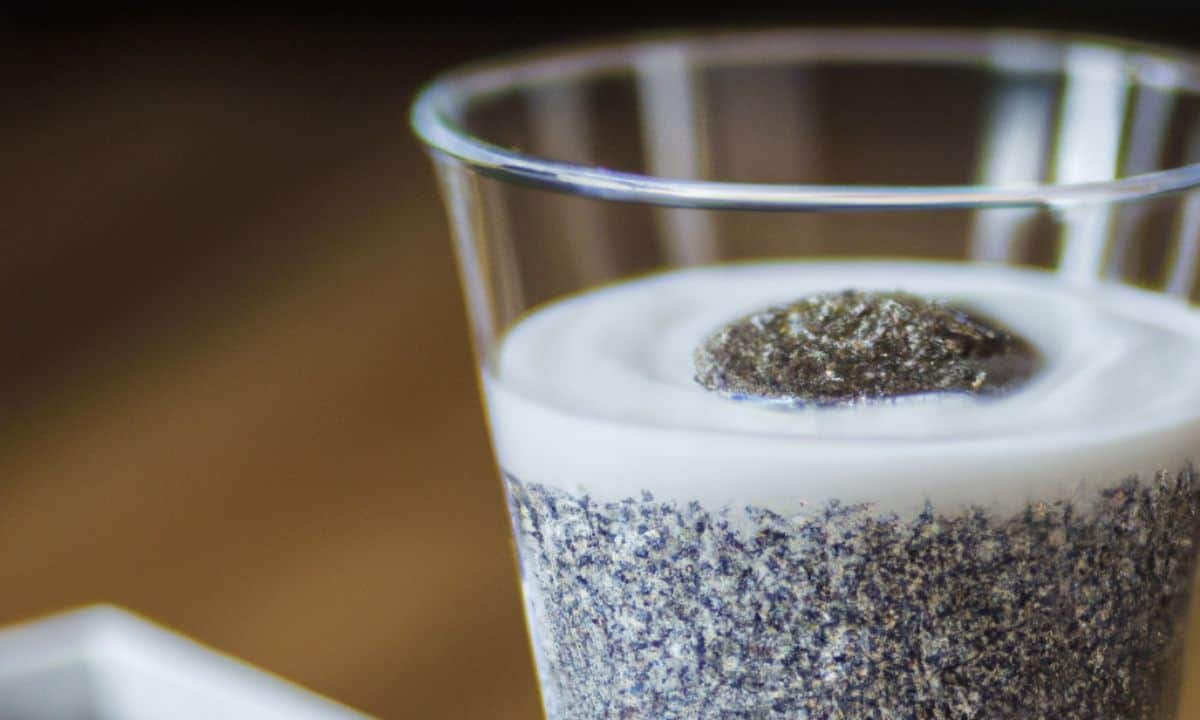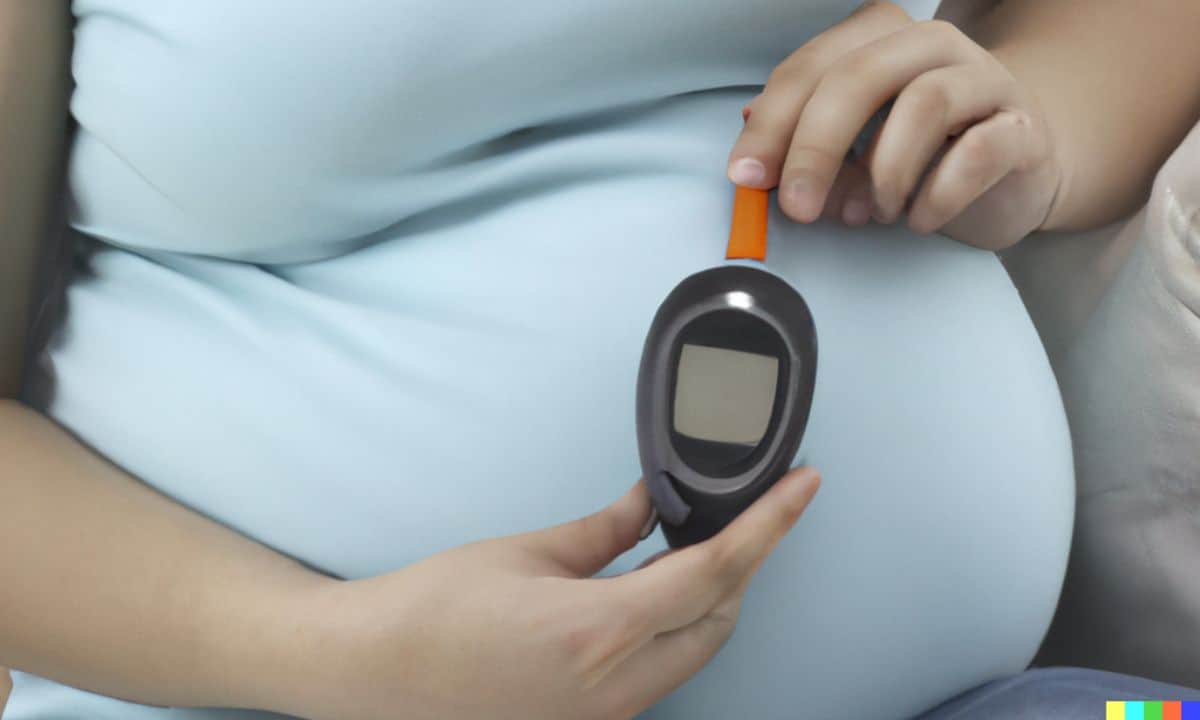Looking for healthy and delicious breakfast ideas while managing gestational diabetes? In this blog post, we will share some gestational diabetes breakfast ideas and tips to help you start your day off right and manage your blood sugar levels effectively.
These ideas are designed to be healthy, tasty, and easy to incorporate into your daily routine.
Jump To:
- What is gestational diabetes?
- How does diet help manage gestational diabetes?
- Gestational diabetes breakfast ideas
- How many carbs should someone with gestational diabetes eat for breakfast?
- Best Gestational Diabetes Breakfast Tips
- Gestational diabetes breakfast recipes you might enjoy
- Foods to limit or avoid
- What else can be done besides the diet?
- Low carb shopping and products you might enjoy
- Conclusion
For individuals managing gestational diabetes, finding suitable breakfast options is crucial for maintaining stable blood sugar levels. "Breakfast Ideas Gestational Diabetes" emphasizes the importance of thoughtful and nutritious choices in the morning like this Artichoke and Onion Fritatta or this Low Carb Berry Smoothie recipe. You might also prefer a High Protein Omelette recipe.
What is gestational diabetes?
Gestational diabetes is a type of diabetes that affects pregnant women. It occurs when the body is unable to produce enough insulin to regulate blood sugar during pregnancy.
Proper treatment of gestational diabetes is essential for the health of both mother and child. One of the most important aspects of managing gestational diabetes is eating a healthy diet that includes breakfast.
In this blog post, we discuss the nature of gestational diabetes, the best breakfast ideas, what carbs to eat and tips for managing blood sugar. We also look at foods to avoid and what else can be done to manage gestational diabetes besides diet.
How does diet help manage gestational diabetes?
Diet plays a vital role in the treatment of gestational diabetes. A healthy low carb diet can help regulate blood sugar, prevent complications during pregnancy, and promote healthy growth and development of the baby.
When a woman has gestational diabetes, her body cannot produce enough insulin to regulate blood sugar. That's why it's important to follow a low-carb, low-fiber diet with a balance of protein and healthy fats. Thus, it can help regulate blood sugar and prevent a rapid rise in glucose after a meal.
Gestational diabetes diets usually include complex carbohydrates such as whole-grain bread, brown rice, quinoa and sweet potatoes. These foods provide fiber, vitamins and minerals and are digested more slowly than refined carbohydrates. It helps regulate blood sugar and keeps mom full longer.
Protein is also an important part of the gestational diabetes diet. Good sources of protein include lean meats, poultry, fish, eggs, beans and tofu. Protein helps regulate blood sugar, keeps the mother full and promotes healthy growth and development of the fetus.
Healthy fats are another important part of a gestational diabetes diet. Good sources of healthy fats include avocados, nuts, seeds, olive oil and fatty fish. These fats help regulate blood sugar, promote healthy fetal brain development, and reduce the risk of premature birth.
It is also important to avoid sugary and processed foods such as sweets, soda and fast food. These foods can cause blood sugar to rise rapidly, leading to pregnancy complications such as high blood pressure, preeclampsia and premature births.
A healthy diet plays an essential role in the management of gestational diabetes. Following a diet low in carbohydrates, high in fiber, high in protein and healthy fats, and avoiding sugary and processed foods can help regulate blood sugar, prevent complications during pregnancy, and promote healthy fetal growth and development.

Gestational diabetes breakfast ideas
A healthy breakfast is essential for managing gestational diabetes. Here are some low-carb, high-protein breakfast ideas that are healthy for both mom and baby:
- Greek yogurt with berries and almonds
- Cottage cheese with sliced avocado and cherry tomatoes
- Scrambled eggs with spinach and feta
- Peanut butter and banana smoothie with almond milk and chia seeds
- Whole wheat toast with almond butter and sliced apples
- Omelet with spinach, mushrooms and goat cheese

How many carbs should someone with gestational diabetes eat for breakfast?
The amount of carbohydrates you should eat at breakfast depends on your blood sugar level and your doctor's recommendations. In general, a healthy breakfast for a woman with gestational diabetes should contain 15-30 grams of carbohydrates. It is important to distribute carbohydrates evenly throughout the day and avoid excessive consumption of carbohydrates at one meal.
Best Gestational Diabetes Breakfast Tips
Here are some tips to control blood sugar and make breakfast healthy and enjoyable:
- Add protein: Protein helps keep you full and helps regulate blood sugar. Good sources of protein include eggs, Greek yogurt, cottage cheese, nut butters, and cheese.
- Choose whole grains: Whole grains are a good source of fiber and can help regulate blood sugar. Good whole-grain choices include oatmeal, whole grain bread, and quinoa.
- Limit sugar: Avoid sugary breakfast cereals, pastries and juices as they can cause blood sugar to rise quickly.
- Add healthy fats: Healthy fats like avocado, nuts and seeds can help regulate blood sugar and keep you full.
- Plan Ahead: Planning your breakfast ahead of time will help you make healthy choices and avoid reaching for unhealthy choices.
Using these tips and meal ideas will help keep your blood sugar under control and give you a healthy start to the day.

Gestational diabetes breakfast recipes you might enjoy
Foods to limit or avoid
There are certain foods that should be avoided in the treatment of gestational diabetes because they can cause a rapid rise in blood sugar and complications during pregnancy.
Here are some foods to limit or avoid if you have gestational diabetes:
- Sugary foods and drinks: Sweets, desserts, sweets and sugar-sweetened drinks should be avoided. They are high in simple carbohydrates and can cause a rapid rise in blood sugar.
- Processed Foods: Processed foods such as potato chips, crackers and snacks are often high in carbohydrates, unhealthy fats and added sugars, which can raise blood sugar. If you are going to snack and want some "healthier" low carb chip options, check out this Best Low Carb Chips blog post.
- Bread and rice: Bread and rice are refined carbohydrates that are quickly digested, causing a rapid rise in blood sugar. It is better to choose whole grain products, which contain a lot of fiber and are digested more slowly.
- Fatty and fried foods: Fried foods such as fried chicken and chips are high in unhealthy fats and It is better to choose low-fat or fat-free options.
- Sweetened breakfast cereals: Many breakfast cereals contain a lot of added sugar, which can cause a rapid rise in blood sugar levels. It is better to choose whole food products with a low sugar content.
Avoiding or limiting these foods and choosing healthy alternatives can help regulate blood sugar and prevent complications during pregnancy. Talk to your healthcare provider or registered dietitian to create an individualized meal plan that meets your specific nutritional needs and blood sugar goals.
What else can be done besides the diet?
In addition to a healthy diet, there are several other things you can do to control gestational diabetes:
- Exercise regularly: Exercise helps lower blood sugar and improve insulin sensitivity. It can also help control weight during pregnancy. Consult your doctor before starting an exercise program.

Monitor blood sugar levels: Regular monitoring of blood sugar levels is important to ensure that it is within the target range. It helps prevent complications during pregnancy and ensures proper growth and development of the baby.

Take medication as directed: If diet and exercise are not enough to control blood sugar, medication may be necessary. It is important to take medications as prescribed by your doctor to control your blood sugar.
Attend prenatal appointments: Regular prenatal appointments with your healthcare provider are important to monitor blood sugar levels, fetal growth and development, and potential complications during pregnancy.
Get enough sleep: Lack of sleep can cause stress and affect blood sugar. Getting enough sleep each night is important for managing gestational diabetes.
Reduce stress: Stress can also affect blood sugar. Find ways to reduce stress, such as practicing relaxation techniques, talking to a therapist or participating in stress-reducing activities.

Eating a healthy diet, exercising regularly, monitoring blood sugar, taking medications as prescribed, attending prenatal appointments, getting enough sleep, and reducing stress can help manage gestational diabetes and promote a healthy pregnancy. Talk to your doctor to create an individualized plan that meets your specific needs and goals.
Low carb shopping and products you might enjoy
- Good Dee's Low Carb Baking Mixes - baking mixes, from brownies to pancakes to cookies, all that are gluten-free, with no added sugar, and keto/diabetic friendly.
- Chip Monk Baking - Gluten free and low carb desserts.
- CanDo - Krisp Protein Bars and on-the-go low-carb snacks.
- Primal Kitchen - real-food condiments, dressings, sauces, snacks and pantry staples.
- Great Low Carb Baking Company - low carb baked products.
- Catalina Crunch - offering low carb cereals.
- Lakanto Sweeteners - Low carbs sweeteners like Monk Fruit, Allulose and Erythritol. Use code IHACKEDDIABETES at checkout for 15% off.
- Key Nutrients - Sugar free hydration supplements.
Conclusion
Gestational diabetes can be treated with a healthy diet, including a nutritious breakfast. Eating a balanced breakfast that is low in carbohydrates and high in protein, whole grains and healthy fats can help regulate blood sugar and keep you full.
Disclaimer: I am not a medical professional or nutritionist. Please consult a doctor or medical professional to determine the best diet and meal plan for you and your baby.







Leave a Reply